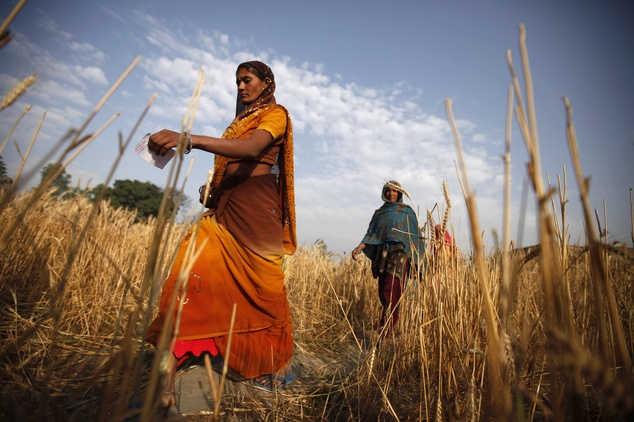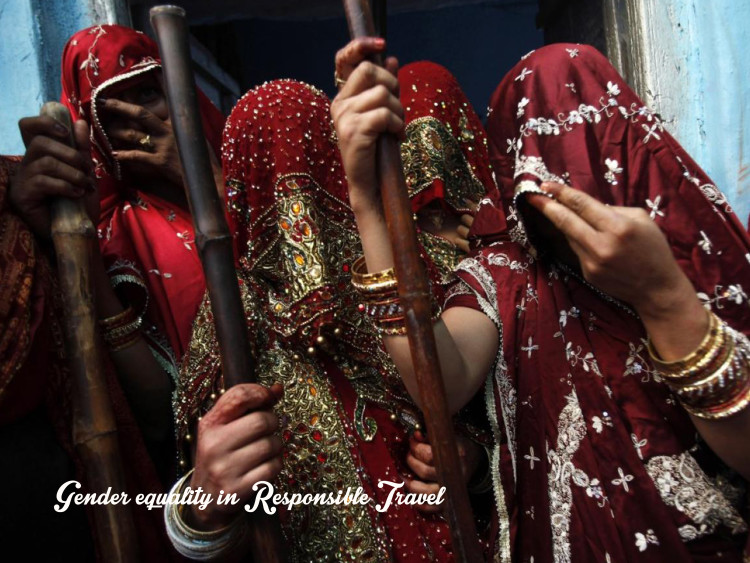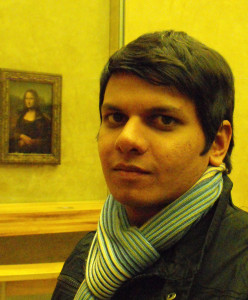This is probably my first post that is on a real life issue that exists in villages and cities of India – Gender equality. I have tried to write it by giving examples from my travels focusing on the importance of gender equality in responsible travel.
Gender equality – Is it gravely misunderstood?
The common perception of gender equality puts men, as well as women under tremendous pressure of constant comparison to the opposite sex which is similar to comparing oranges with onions. When a woman is able to take on the activities that are done by a man, she is considered independent and powerful. The baseline measure of a woman’s capability is to compare her to a man. This concept is fundamentally flawed. By laws of this universe, a woman and a man exist to complement each other, not compete.
The village communities are often small and very closely knit. Generally, women take care of the children, house and contribute to a certain extent in farming. Men on the other hand take on the responsibility of taking up jobs to provide to the family. In certain societies, the activities of a woman are looked down upon. But managing a house and children is a very big task in itself.
Fundamental differences and unique qualities of men and women:
Some of the fundamental differences created by nature in men and women give them unique power which makes them complement each other. Women can give birth; they are the first ones to hold the baby close to their heart forming a bond stronger than a man. Women have the capability to multitask and they have an inherent eye for detail. On the other hand, nature has created men to be physically stronger than women. A male brain is wired not to multitask like a woman, but to focus on one thing at a time.

Relating it to the dynamics of Responsible Tourism:
A community that aims to thrive using Responsible Tourism can do so more effectively once it begins to understand this basic complimentary difference between its men and women. Distribution of roles and responsibilities within the community is important. I have lived with communities in Sikkim, India where the woman takes care of house, washrooms, food, and of welcoming the guests. The man takes care of arranging activities in village, taxi, village guides and marketing. He does this along with the day job. They give each other suggestions for improvement, but they don’t interfere with the other person’s work. Nor do they try to control each other when one of them makes a mistake.
Any feedback by the guests regarding the house goes directly to the housewife where she is the final decision maker. I do not expect such an understanding to come immediately. Over time, it can definitely be achieved if conscious efforts are made.
On the contrary, I have also lived with communities in Rajasthan, India where men take most of the decisions. Women generally do not appear in public or take decisions. One of the fundamental flaws here is a comparison of women with men. Men are often left with a lot of pressure because a woman with her own opinion makes the society raise questions on their masculinity and their incapability to control her. This kind of model lacks in fulfilling one of the purpose of Responsible Tourism, which in my opinion, should give each individual his or her own voice.
For any Responsible Tourism project, it is necessary to identify and clearly demarcate the roles and responsibilities of men and women of that community. It is also important to educate them to view the other gender as unique and capable of doing certain tasks in a better way. Organizations that do training in villages on Responsible Tourism should take this aspect into account. This will not only inculcate mutual respect, but also give a lot of workability in fulfilling the purpose of Responsible Tourism
What is your view of Gender equality?
Travel with me on Facebook and Twitter
Feature image source: www [dot] ibtimes [dot] com
Related Articles:
===
Responsible Travel & Social, Environmental and Financial issues of Rural India
Rural Tourism – Myths and Reality
Photo Essay – Why I became a Rural Traveler
Gaurav BhatnagarSoftware Engineer turned Travel Writer, Photographer, and Public Speaker on Responsible Travel. Entrepreneur in Responsible Rural Travel @ www.thefolktales.com
|









Interesting and a well-balanced argument and points of view, Gaurav.
Where I come from (Shillong), it is a matrilineal society. In my years of growing up, I experienced a huge contrast within and outside my family. The former, my grandfather/father are the breadwinners and my mother is the homemaker. The latter, however, I saw that women were playing both the roles and most of my batchmates in school carry their mothers’ last name. This created plenty of questions in my mind.
In the last decade of adulthood, I have realised (through my travels essentially) that in mountain villages, it still is the woman doing all the work and making the decisions of the family, while the men lie drunk most of the times. While this is not applicable to all the households, I can most confidently say this is true for a majority of them. In plains, it is the other way round. Men are more driven and delegate work to the women, when necessary.
I feel in rural tourism, to bring about gender equality (awareness) workshops, training and programs are necessary. A lot of people don’t know what life if beyond their homes and neighbours, which is why people who do (and have some authority to bring about a change) should try and work with communities. Community building and awareness is essential to bridge the disparity.
Thanks Amrita for taking time to write a well thought out reply. Matrilineal society is something that I came to know of when I went to Meghalaya in April this year. Yes, I agree that in most mountain villages, men lie idle drunk all the time. One point that I really wanted to convey here is that the concept of equality is flawed. Men and women are never equal. They are unique in their own ways and are meant to fulfill their purpose. They are whole, perfect and complete in their own sense. Therefore they complement each other not compete. Don’t you think when one gender (female) tries to always strive for equality with a male, she by default considers herself as a lesser person?